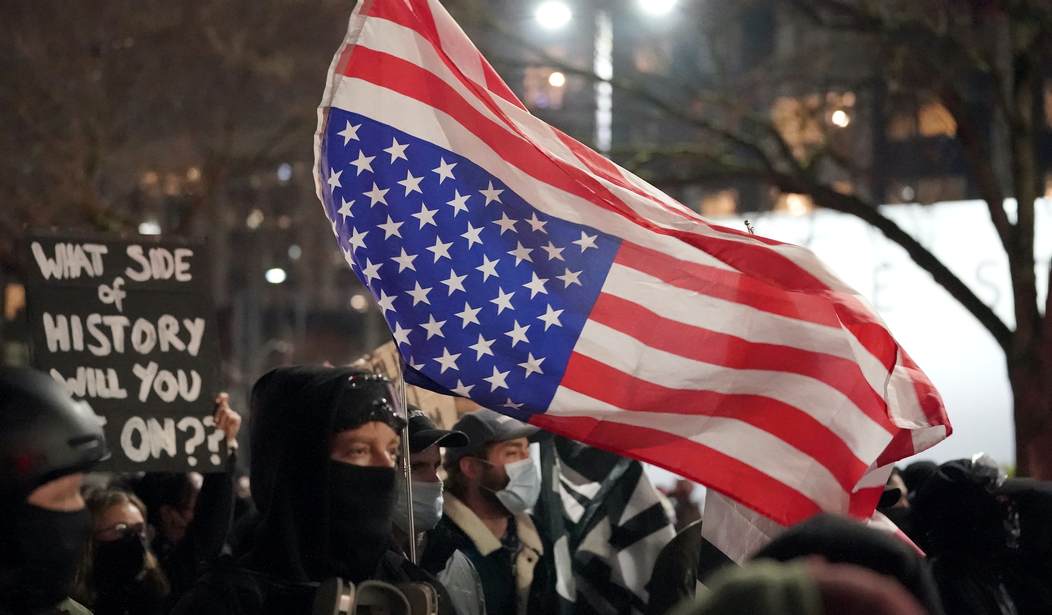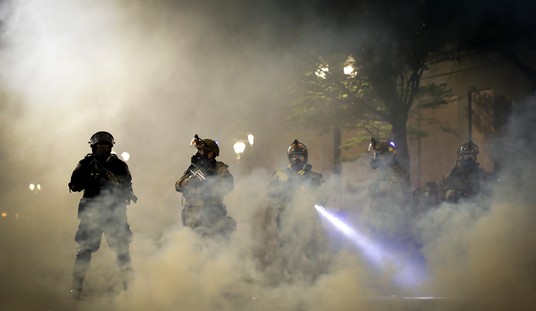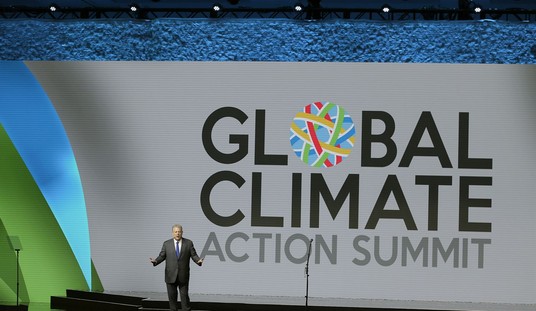If you've paid even a modicum of attention to the intentional divisiveness in the 2024 presidential election campaign, it should come as no surprise that the results of a new Gallup poll released on Monday show that a record percentage of Americans believe the country is sharply divided on core values.
Moreover, the reasons behind the divisiveness should be clear, as well. We'll get there in a minute.
According to the poll, a whopping eight out of 10 American adults say the country is “greatly divided” on core values ahead of November’s presidential election, while just 18 percent of respondents to this year's survey think the country is “united or in agreement about the most important values.”
I presume those 18 percent — regardless of party affiliation — live under a rock.
Here's more, via Gallup:
Public skepticism about national unity isn’t new. Surveys by Gallup and others dating back to the 1990s show that Americans typically have seen the country as divided on key values. Only in 2001 and 2002, in the aftermath of 9/11, did Gallup find most Americans perceiving the opposite, with over two-thirds of U.S. adults believing the nation was united.
The latest results are based on an Aug. 1-20 Gallup poll. The question was first asked on the General Social Survey in 1993 and has been updated by various organizations since, including periodic Gallup measures since 2001. The "most important values” are not defined for respondents but left to their own interpretation.
Americans from all backgrounds have similar views — between 74% and 83% of key gender, age, race, political and educational subgroups perceive the nation as divided in the current survey.
In most years, Democrats, Republicans and independents have held similar views of whether the nation is united or divided. However, there were significant party gaps in 2004, 2012 and 2016.
- Republicans were more likely than Democrats to see the country as united by 15 percentage points twice — in 2004, when Republican George W. Bush sought and won a second term as president, and in 2016, after Republican Donald Trump’s surprise victory in that year’s presidential election.
- Democrats perceived more unity in the country by 18 points in 2012, after Democratic President Barack Obama was reelected.
In the four other years for which party identification data are available, the average party gap has been six points, including four points in the latest survey.
Gallup also reported that divergent perceptions of national pride, trust in government, and confidence in U.S. institutions have occurred throughout both Republican and Democratic presidential administrations, strong and weak national economies, and national rises, triumphs, and tragedies.
While the observations in the above paragraph might appear convoluted to some, they're actually easy to explain. As the old axiom suggests, perception is more important than reality.
Where conservatives see Biden-Harris's virtual open-border policy as a national crisis, the Democrat Party sees it as an opportunity to permanently alter the demographic make-up of America — in their favor.
Where Democrats see ever-increasing taxes as a way to "stick it to the rich" and big corporations while more "fairly" redistributing wealth to those who didn't earn it, conservatives see lower taxes as more favorable to both economic growth and Americans in all tax brackets — from the lowest to the highest.
The list of "perception vs. reality" examples goes on and on.
Gallup senior editor Jeffrey M. Jones also explained:
Today’s doubts about national unity are likely informed by the closely contested presidential elections in recent years, as well as alternating partisan control of Congress that currently has a narrow Republican majority in the House of Representatives and a razor-thin Democratic majority in the Senate.
While I don't disagree with Mr. Jones, the miles-apart policy differences between the policies of Donald Trump and Kamala Harris — particularly with respect to the economy — contribute to the current divisiveness as much or more than any other factor.
While Harris has campaigned on the nebulous promise of her "Opportunity Economy," Trump has focused on putting an end to "reckless big government spending," leveling the free-trade playing field, "unleashing" America's natural oil and gas reserves in an effort to reduce fuel costs and increase the country's energy independence, and lowering or eliminating various taxes.
ALSO READ:
Fetterman's Take on Trump and Pennsylvania Voters Is Bad News for Kamala Harris
How Divided Is America? The Answer Is Complicated.
The Bottom Line
As we've clearly seen since the days of the Obama administration, the Democrat Party believes it most benefits by dividing the country — be it along economic or racial lines, on the third-rail issue of abortion, so-called transgenderism, or any other issue they can exploit to lie about conservatism.














Join the conversation as a VIP Member